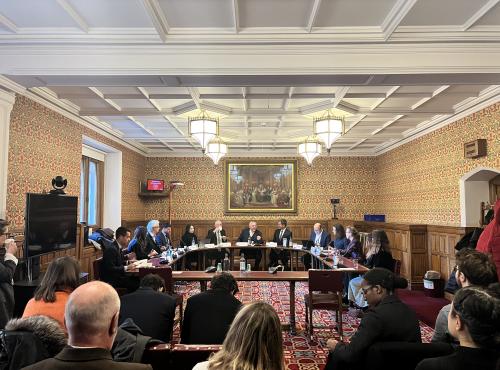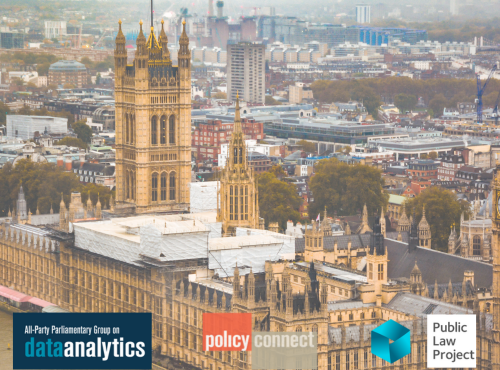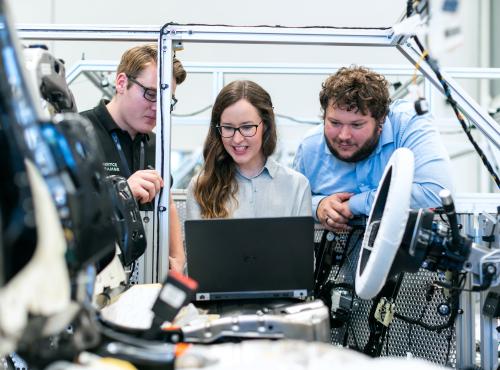Higher Education in the world of Generative AI and ChatGPT
Generative AI, although not a novel concept, has experienced rapid advances in large language models (LLMS) in the past year with the public release of ChatGPT. These developments have been met with mixed reception from across the higher education (HE) sector, representing the complexity and lack of formalised guidance around the subject. The All-Party Parliamentary Group on Data Analytics (APGDA) partnered with the Higher Education Commission to to explore the impacts of Generative AI on the HE sector on 12 September.
The influence of Generative AI (GenAI) on assessment and feedback has dominated headlines in the past months - with many research-intensive universities drawing up guiding principles on the use and implementation of GenAI tools. Perceptions of AI use in HE have been divisive across disciplines and educating and awarding bodies.
The roundtable session gathered various stakeholders of the HE sector for a productive discussion. Participants gathered to discuss the current challenges and risks as well as opportunities facing the sector amidst the new wave of technological advancements in educational technology. This especially considered the impact of GenAI with a special focus on changing approaches to assessment and feedback.
Findings from this roundtable will feed into the Higher Education Commission’s ongoing inquiry into the digital transformation of education (the future of blended learning models). Furthermore, findings will support the Department for Education’s Call for Evidence on the use of Generative AI in Education.
The discussion was held under Chatham House rules. Daniel Zeichner MP, who chairs the APGDA, hosted the roundtable session. Introductory remarks were made by Alyson Hwang, Policy Connect (Higher Education Commission). Participants included a range of stakeholders across the sector, including academics, educators, tech providers, and the third sector.
The roundtable was facilitated as an open discussion. Speakers addressed the impact of new technology and software (specifically Large Language Models) on how educators assess students. The current model and approach to assessment and feedback needs re-evaluation and innovation, as it too often focuses on knowledge acquisition and transfer over measuring skills and capabilities. A theme that repeatedly arose in the discussion was the variation of practice not only between institutions, but also within a single faculty or department. There were wider concerns about the purpose of Higher Education and the value of a degree in the current socio-economic climate, which was shared by HE providers, educators, and officials alike.
Speakers advocated for a responsive, government-led intervention that supports innovation for curriculum and pedagogy across the sector.
For more information about this work, please contact alyson.hwang [at] policyconnec.org.uk (Alyson[dot]Hwang[at]policyconnect[dot]org[dot]uk)



